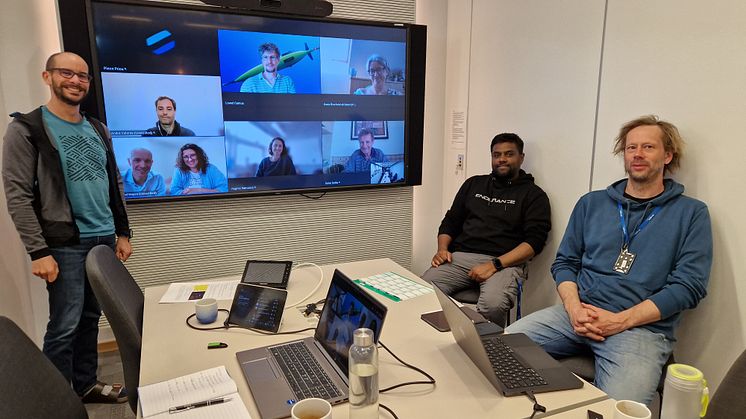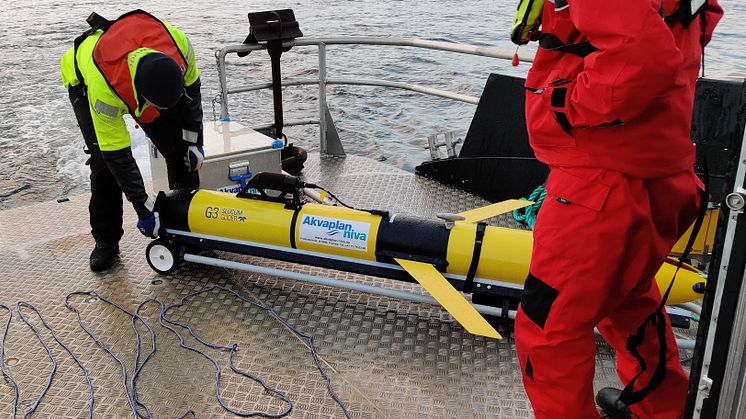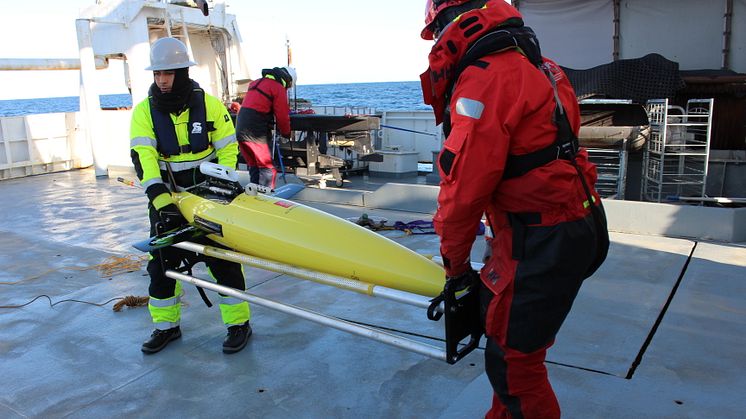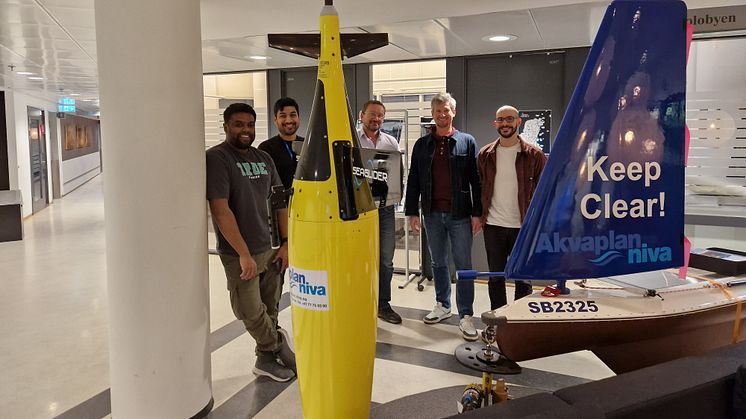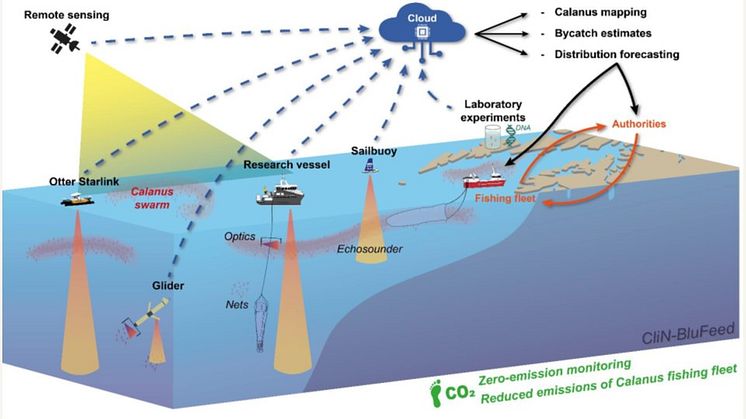
CliN-BluFeed
Dato 1. februar 2024 00:00 – 30. april 2027 00:00
Full title: A low-CO2 smart autonomous multiplatform system to monitor and forecast Calanus finmarchicus stock - a new sustainable climate-neutral blue fish feed
Project lead: Lionel Camus, Akvaplan-niva
Partners: Akvaplan niva (project lead), CSCS, AIR Centre - Atlantic International Research Centre, IOPAN, Alfred Wegener Institute (AWI)
Funding: Horizon Europe, Sustainable Blue Economy Partnership (SBEP)
Primary objective: to develop methodologies that advance the Norwegian Sea Calanus fishery as a sustainable climate-neutral blue resource for the aquaculture industry by harnessing the potential of cutting-edge, low-carbon-emission autonomous marine monitoring technologies coupled with remote sensing, artificial intelligence (AI), simulation modelling, and experimental investigations.
Project description on Sustainable Blue Economy Partnership
 |
 |
|
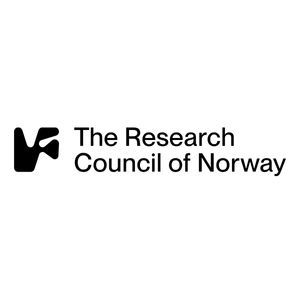 |

